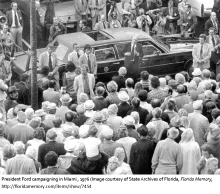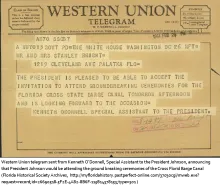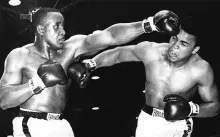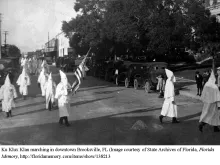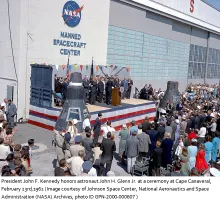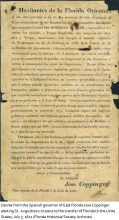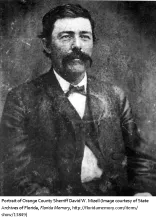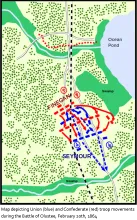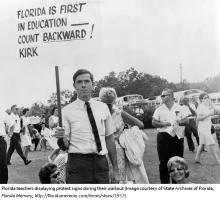1976 – President Gerald Ford made a campaign stop in Miami on this date. Ford would go on to win the Republican primary against then Governor of California and future President Ronald Reagan, but lost the general election to Jimmy Carter. Ford had been President since August of 1974 when then President Richard Nixon resigned from office.
1964 – President Lyndon B. Johnson spoke at the opening ceremonies of the Cross Florida Barge Canal on this date. President Johnson even detonated the first charge to break ground for the new project. In his speech Johnson said, “The challenge of a modern society is to make the resources of nature useful and beneficial to the community, so this is the passkey to economic growth.” For centuries people theorized about building some kind of cross-state canal, but it was not until 1933 when the federal government authorized some funding.
1980 – The Crystal River 3 Nuclear Power Plant was shut down after a spill of radioactive water on this date. The problem stemmed from a malfunction on a control panel which triggered the emergency shutdown and the dumping of 430,000 gallons of radioactive water. The problem was eerily similar to the Three Mile Island incident in Pennsylvania in 1979, but was quickly contained.
Cassius Clay (Muhammad Ali) defeated World Heavyweight Boxing Champion Sonny Liston in Miami Beach on this date. The fight was one of the most anticipated, watched, and controversial matches of all time. This first of two meetings between the two heavyweights was held in the Miami Beach Convention Hall, with over 8,000 people in attendance, and grossed nearly $4.5 million dollars, one of the highest grossing fights of all time.
1922 - The Ku Klux Klan participated in the Tourist's Day parade in Brooksville, Florida. In the early 1920s it was not uncommon for the KKK to march without opposition in civic parades in cities and towns throughout the state, despite their ongoing efforts to intimidate and deny rights to African Americans and other minorities, often using violence.
1962 – Astronaut John H. Glenn Jr. was honored by President John F. Kennedy at Hangar S in Cape Canaveral on this date after Glenn’s successful orbit of the earth three days prior. Glenn became the first American to orbit the earth aboard the spaceship Friendship 7, and was only the fifth human in space. Glen would later be elected to the U.S. Senate in 1974 and would serve in that position until his retirement in 1999. He would also fly on a Space Shuttle mission (STS-95) in 1998, becoming the oldest person (77) to fly into space.
1819 - Secretary Of State John Quincy Adams and Spanish minister Luis de Onís signed the Adams-Onís Treaty, also known as the Transcontinental Treaty, ceding the Floridas to the United States on this date. After the American Revolution, Spain received the Florida colonies back from Britain and almost immediately, tension along the border with the newly independent United States of America began.
1870 – Orange County Sheriff David W. Mizell was shot and skilled in an ambush while on his way to arrest cattlemen Moses E. Barber near Holopaw in what is now Osceola County on this date. The ambush stemmed from early disagreements over the payment of taxes on cattle. Moses Barber refused to pay what he believed to be unfair taxes on his cattle, and as a response Mizell and his family would take his cattle as payment for delinquent taxes. Barber publically warned Mizell not to step foot on his property, but on this date in 1870 he did, resulting in his death.
1864 – The Battle of Olustee took place on this date. Also known as the Battle of Ocean Pond, it was the largest Civil War battle fought in Florida. Union General Truman Seymour and 5,500 troops met Confederate Brigadier General Joseph Finnegan with a force of around 5,000 troops clashed near present day Lake City. Union forces were driven back to Jacksonville after intense fighting, although casualties remained high on both sides. The site of the original battle is now an historic state park and a reenactment of the battle takes place every year within the park grounds.
1968 - More than 27,000 teachers did not show up to work, forcing numerous schools to close because of a lack of instructors. The cause of the strike was under-funding of the state's educational system at a time when attendance was rising sharply, and low pay and benefits for teachers. The strike lasted from a few days in some school districts to three months in others. Although a special session of the Florida Legislature approved higher taxes to pay for more school funding, FEA members felt the funding hikes were not enough and voted to continue striking.

